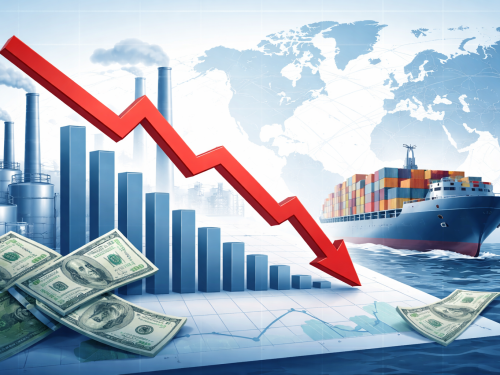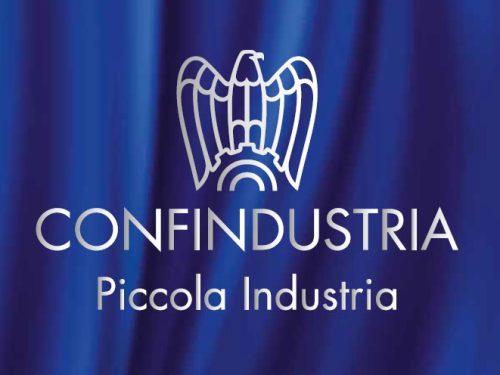Communiqué
Print
Share on
SUSTAINABILITY: 4 MILLION WORKERS WITH GREEN SKILLS REQUIRED BY 2026
One in two companies is investing in sustainable transformation processes. Project by Confindustria, Federmanager and 4.Manager kicks off.
Venice, 10 February 2023 - The project promoted by Confindustria and Federmanager, promoted with 4.Manager, centred on the strategic figure of the Sustainability Manager, starts today in Venice, World Sustainability Capital. The aim of the initiative is to survey companies' need for specific managerial skills, highlighting the skills of this emerging professional and structuring a training course dedicated to it. The action also aims to raise awareness in territories and institutions on the need to introduce incentive policies to support companies that equip themselves with managerial skills in this field.
According to data from the 4.Manager Observatory, which surveyed a panel of more than 4,000 companies, our industrial system has increased the demand for managers with increasingly precise skills by 5% each year in the sector greenas well as qualified in ESG criteria, a market that has grown by 19% since 2021. Overall, the companies surveyed stated that over the past three years they have acquired: managerial skills (64%); scientific skills (45%); technical skills (73%). In this respect, the Report reveals that more than 50% of Large and Medium-sized Enterprises are developing a transformation strategy towards sustainability, seeking professionals capable of understanding all business processes while improving planning and management.
Most companies, including those that are not very innovation-oriented, are aware that only sustainable transformation will avoid operational limitations in accessing markets and credit. By 2030, non-sustainable companies will represent the residual part of a market in which 'sustainable' goods and services will be the norm.
From the data collected on LinkedIn, in the last year there has been a constant demand and growth of some professional qualifications in the sustainability area in Italy, including the role of Sustainability Manager (+52%), followed by the role of Sustainability Specialist (+43%) and the role of Sustainability Consultant (+34%). The top three cities with the highest concentration of these professionals are: Milan, Rome and Turin.
Between 2023 and 2026, both companies and the PA will need around 4 million workers with high and medium green skills. In this context, the employment of a professional figure with transversal ESG skills becomes crucial.
To this end, Confindustria, Federmanager and 4.Manager have identified and profiled in detail the characteristics and competences of the emerging sustainability managerial figures: sustainability manager, environmental manager, social manager, governance manager (see attached Summary).
"To make the transition a great opportunity for development and innovation, the skills factor plays a fundamental role,' he said. Katia Da Ros, Confindustria Vice President for Environment, Sustainability and Cultureon the occasion of today's first stage. "Strengthening skills dedicated to sustainability also means facilitating the development and inclusion of dedicated figures in the company, such as the sustainability manager, who can play a strategic role for companies, also in relation to ESGs criteria. Sustainability is the only possible dimension for continued growth. This is why we are committed to supporting our system along this path,' Da Ros added, 'with the aim of enhancing skills and improving communication strategies, and thus capitalising on the efforts made so far to make and make the industry increasingly aware of the value of being sustainable. To accompany companies in this paradigm shift of the doing business, where the concept of Industry 4.0 - mainly innovation-oriented - is evolving towards a 5.0 solution and where innovation merges with the components of sustainable transition, it is imperative to initiate a new, ambitious industrial policy plan that enhances and incentivises investments dedicated to green and sustainable transition, including training and skills aspects'.
"The growing demand for managerial skills with green skills and for figures such as the Sustainability Manager demonstrates not only that innovation and sustainability are intrinsically linked, but above all that sustainability has taken on a strategic role for the country's development, also in response to the needs of the energy market and PNRR investments," commented Stefano Cuzzilla, President 4.Manager and Federmanager. "This is why it is important for institutions to support, also in the form of incentives, all companies that will include within them figures specialised in ESG issues who, thanks to their know-how, will be able to lead our country towards an economy of sustainability that is not only environmental but also economic and social".
Guest of the day the Deputy Minister for Ecological Transition Hon. Vannia Gava who said: "The ecological transition can and must be an opportunity for economic growth and development within the groove of sustainability. However, the achievement of green goals is only possible by governing the transition process we are experiencing in the right way, which must certainly be tackled with the right timing but also, and above all, with the right tools. The results we have managed to achieve are also the result of the stimulating confrontation between institutions and the various stakeholders, among them the industrial system represented by Confindustria. This comparison,' Gava continued, 'has stimulated dialogue, the exchange of information and synergy between the parties, focusing on the innovations that will contribute most to the sustainable evolution of our country. The hope is to be able to maintain and continue this healthy and fair dialogue that has been consolidated over time and to pursue shared actions to achieve common goals. The direction taken, namely that of interlocution, is in fact the right way to pursue sustainability, not only environmental, but also social and economic,' concluded the Deputy Minister.
The event was hosted by Confindustria Veneto Est, represented by Vincenzo Marinese, Deputy Vice President of Confindustria Veneto Est delegate for Venice and
Walter Bertin, Vice President of Confindustria Veneto Est ESG delegate which state: 'The success of sustainability projects in companies increasingly requires human capital with the right skills, starting with specific managerial figures. At least three quarters of the recruitments planned by companies in Veneto require green skills, and in a significant percentage figures with high specialisation in this area. At the same time, the difficulty of finding them remains high. In Confindustria Veneto Est we have been investing for years in the relationship with schools and universities to launch specific programmes on sustainability and to spread shared knowledge that then becomes part of the baggage of skills of young people entering the world of work. And there is a great need for dedicated managerial figures to accompany entrepreneurs in the complex processes of transition to sustainability in which companies are investing, to develop awareness internally, communicate to stakeholders, and build a sustainable strategic plan. A transformation phase in companies and communities that is both challenging and necessary, for which human capital is the essential resource'.
Finally, Cristina Bombassei, president of the Technical Group for Corporate Social Responsibility of Confindustria, promoter of the whole project commented: "In recent years, the business environment has changed profoundly and, with it, the needs and demands of companies, which have become increasingly complex and articulated, have also changed. In this scenario, we have an important mission to perform: we must make companies aware of the changes taking place and guide them towards innovative paths. This process,' Bombassei added, 'also requires a widespread and radical renewal of managerial skills, both in companies committed to transforming their production models and in those interested in operating in businesses directly linked to the green economy. It is a matter of developing not only technical skills, but also, and above all, managerial and networking skills, in order to appropriately interconnect all the realities that interface with the logic of sustainability, providing added value to the production process. Promoting sustainability skills, moreover, assumes a strategic value especially for small and medium-sized enterprises, which will have to integrate these aspects more and more into their growth strategies, also in relation to ESGs criteria and the standards and certifications that are also increasingly required to operate in the supply chain'.




